
This conference was created to promote the approach to intellectual disability from a multidisciplinary perspective, with the ultimate aim of enabling people with intellectual disabilities to be as independent and autonomous as possible and to integrate into society as productive members, potentially being able to perform certain jobs perfectly.
Therefore, NeuronUP has selected for this event leading professionals in the field of intellectual disability who will share their knowledge and experiences on four key topics related to intellectual disability: cognitive stimulation, technologies for daily living, independent living and mental health.
Speakers
Final program
Olga Bruna and Roser Fernández
Neuropsychology of intellectual disability: Benefits of cognitive stimulation and intervention strategies.
Mª Carmen Ortega
Intellectual disability and mental health.
Isabel Valle
Technologies for daily living.
Pep Ruf
How to facilitate independent living for people with intellectual disabilities.
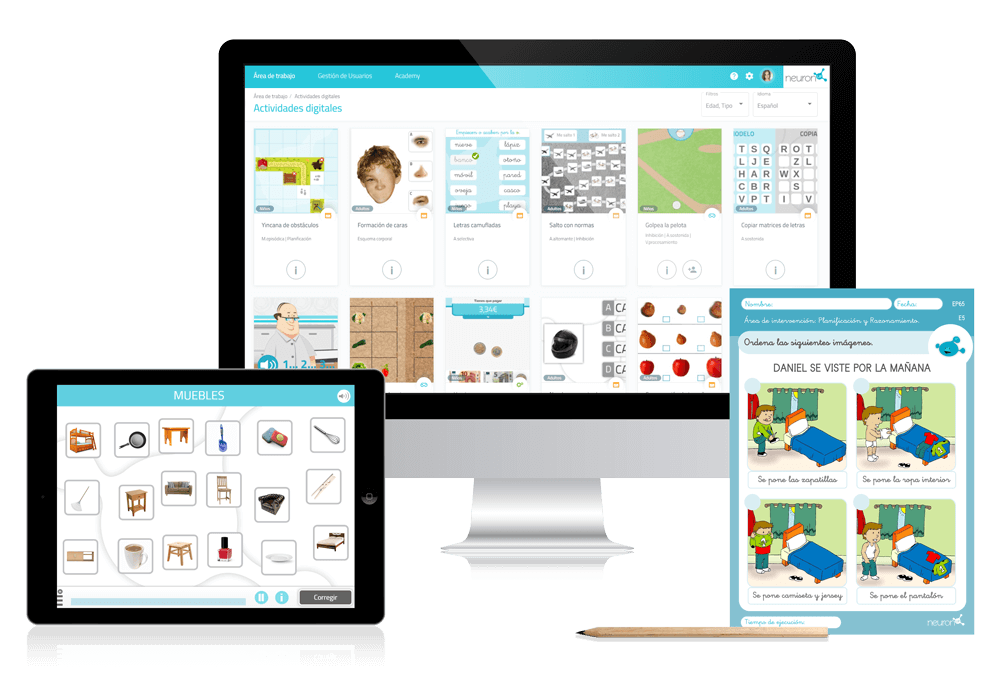
Cognitive stimulation activities for Intellectual Disability
Try NeuronUP free for 7 days
You can work with our activities, design sessions or provide remote rehabilitation. Access thousands of activities developed by cognitive stimulation professionals.
Don’t miss it!
We have prepared a brief introduction to the speakers who will share their knowledge and experiences with all attendees. Learn about their careers, training and take note of what their presentation will cover during the Intellectual Disability Conference.

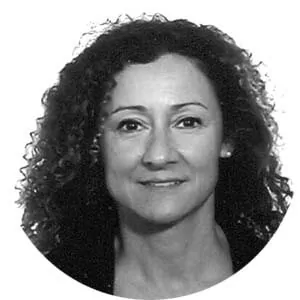
Neuropsychology of intellectual disability. Benefits of cognitive stimulation and intervention strategies
Olga Bruna and Roser Fernández
View the profile of Olga Bruna
Doctor in Psychology, specialist in Clinical Psychology and expert in
Neuropsychology. Associate Professor at the Faculty of Psychology Blanquerna
(Ramon Llull University).
She received the Extraordinary Doctorate Award from the University of Barcelona and
the Doctor Martí i Julià Award from the Institute of Catalan Studies. She completed her
training in the field of Clinical Neuropsychology at the Hospital de la Santa
Cruz and San Pablo in Barcelona and has undertaken stays at neuropsychological rehabilitation centres in Europe, the United States and Australia. She obtained
accreditation for research activity from the Agency for the Quality of the
University System of Catalonia (AQU).
She currently carries out her teaching and research activities in the field of
neuropsychology, aging and dementias. She is Vice President of the
Catalan Society of Neuropsychology. The main research lines
focus on the early detection of cognitive decline in aging,
the cognitive changes in adults with Down syndrome, neuropsychological rehabilitation and cognitive stimulation, the adaptation of neuropsychological tests and support for family members of dependent people.
She participates in competitive national and
international research projects, has supervised doctoral theses and has published several
works (articles, books and book chapters) in the field of neuropsychology, among which the following stand out:
- Bruna, O., Roig, T., Puyuelo, M., Junqué, C and Ruano, A. (eds.) (2011). Rehabilitación Neuropsicológica. Intervención y pràctica clínica. Editorial: Elsevier-Masson.
- Bruna, O., Signo, S. y Molins, M. (2018). Intervención neuropsicológica en trastornos neurodegenerativos. Madrid: Editorial Síntesis.
View the profile of Roser Fernández
Doctor in Psychology, specialist in Language and Hearing Disorders and expert in Neuropsychology. Specialist in Dementias and Neurodegenerative Disorders.
She works at Aura Fundación as coordinator of the Neuropsychology Program.
She worked for ten years as an associate professor in initial training in the Department of Psychology of the Faculty of Education Sciences at UAB in the Teaching Diploma and Degree in Psychopedagogy.
She is currently a collaborating lecturer for the Master’s in Learning Difficulties and Language Disorders at the Open University of Catalonia.
The main research lines focus on the monitoring of the aging process of people with Down syndrome and other intellectual disabilities for the prevention and detection of cognitive decline and intervention through cognitive stimulation. She participates in research projects and has produced several publications (articles, books and book chapters) in the field of neuropsychology, among which the following stand out:
- Mateos, I., Fernández, R., Bruna, O., Signo, S., Gimeno, M., Guerra,, M. and Canals, G. (2021). Estimulación cognitiva en personas adultas con síndrome de Down. Revista Síndrome de Down Vida Adulta, nº 38.
- Amadó, A. and Fernández-Olaria, R. (2019). Comunicació, llenguatge i parla en la síndrome de Down a Eva Aguilar-Mediavilla i Alfonso Igualada (Eds.) Dificultats del llenguatge en els trastorns del desenvolupament. Vol II: Síndromes genètics i trastorn de l’espectre autista. Barcelona: UOC.
- Fernández, R. and Canals, G. (2018). Estimulación cognitiva en personas con síndrome de Down. Revista Síndrome de Down, no 29.
- Flórez, J., Garvía, B. and Fernández-Olaria R. (2015). Síndrome de Down: Neurobiología, Neuropsicología, Salud mental. Madrid: CEPE y Fundación Iberoamericana Down21.
- Signo, S., Bruna, O., Guerra, M, Fernández-Olaria, R. and Canals, G., (2016) El proceso de envejecimiento de las personas con síndrome de Down: estudio multicéntrico para la detección de los cambios neuropsicológicos. Rev Síndrome de Down de Cantabria, vol 33.
Follow her work on social media:

How to facilitate independent living for people with intellectual disabilities
Pep Ruf
Pedagogue. Technical director of the area of support to the person and the community at the Fundació Catalana Síndrome de Down. Coordinator of the National Independent Living Network of Down España. Lecturer in social education at the University of Barcelona (UB) and the Open University of Catalonia (UOC).
Follow his work on social media:

Technologies for daily living
Isabel Valle
Occupational therapist since 1990 and since the following year has worked at Ceapat-Imserso informing and advising on assistive products for daily living.
Her duties include providing training to users and professionals and also preparing publications.
Her latest contribution has been drafting the script for a Ceapat video about control joysticks for electric wheelchairs:
Follow CEAPAT’s work on social media:

Intellectual disability and mental health
Mª Carmen Ortega
Graduated in Medicine and Surgery from the University of Alcalá de Henares in 2001. Specialist in Psychiatry via MIR in 2006 (Hospital Universitario 12 de Octubre, Madrid). Diploma in Advanced Studies in the Neurobiology of Mental Illness in 2005.
From 2006 until September 2021, Specialist Physician in Psychiatry at the Hospital Universitario 12 de Octubre in Madrid. From October 2021 to the present, she has carried out her professional activity in the Department of Psychiatry at the Clínica Universidad de Navarra (Madrid campus).
RESEARCH AREAS
- Psychiatric comorbidity in people with intellectual disabilities.
- Catatonic regression of unknown origin in people with Down syndrome.
- Member of the Down Syndrome Medical Interest Group scientific society.
- Member of the Trisomy 21 Research Society scientific society.
- Study of clinical characteristics and risk factors in people with Down syndrome who have suffered Covid-19.
- Participation in more than 10 scientific publications in national and international journals related to the specialty.
- Co-author of 6 chapters in books related to her specialization.
AREAS OF INTEREST
- Mental disorders in people with intellectual disabilities.
- Mental health and Down syndrome.
- Depressive disorders.
Frequently asked questions
1. Who is this conference aimed at?
This presentation is aimed at neuropsychologists, psychologists, neurologists, occupational therapists, speech therapists, physiotherapists and other professionals who work with people with intellectual disabilities.
2. How much does this conference cost?
This presentation is completely free.
3. Where is this conference held?
The presentation is online and you can access it from anywhere.
4. What is the schedule of the conference?
The conference starts at 15:00 CEST (UTC +2) and ends at 20:30 CEST (UTC +2).
You can see the full program here.
5. Is there a Q&A session?
Yes. The speakers will answer questions live during the last 15 minutes of their presentation.
6. Is the conference live?
We record the presentations in advance to ensure the highest quality and to try to avoid possible interruptions due to poor connection. After their presentation, the speaker will be available LIVE for 15 minutes to answer questions.
7. Is there a certificate of attendance?
Yes, each presentation will have its individual certificate of attendance which will be sent by email. Those who watch it on demand will not receive a certificate of attendance.
8. Will it be available on demand?
After the live broadcast, the presentations will be available on demand.
When they are published, an email notification will be sent to those registered for the conference.
However, only those who attend the conference on October 4 will receive a certificate of attendance.
9. Recommendations for attending the presentation
- Access from a computer. People accessing from a mobile device may have problems viewing or hearing the presentation due to insufficient Wi‑Fi signal, so we recommend accessing from a desktop or laptop computer.
- Use a wired connection, if possible instead of Wi‑Fi.
- Perform a connection test before joining the presentation. This option is available for each user on the event entry screen.
“This article has been translated. Link to the original article in Spanish:”
Jornada de Discapacidad Intelectual: Avances y Retos de Futuro
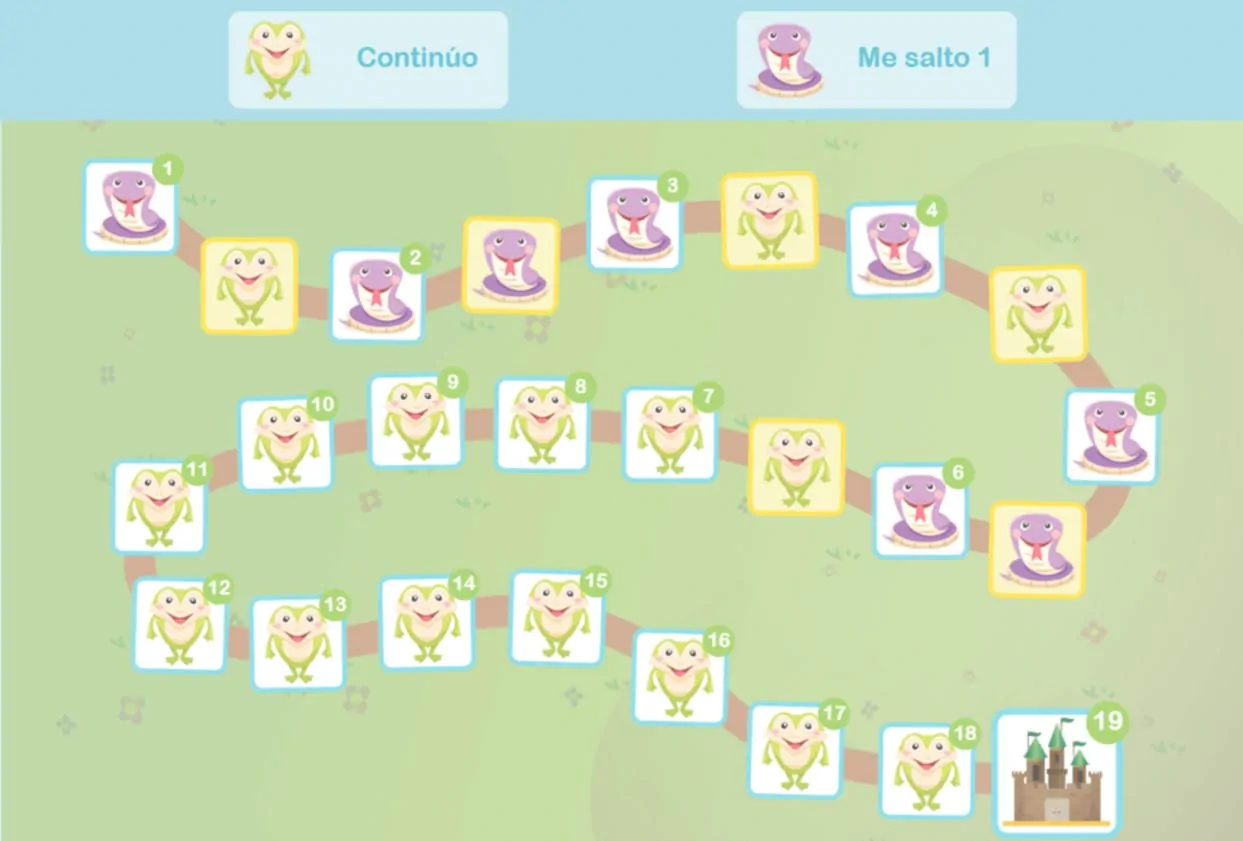
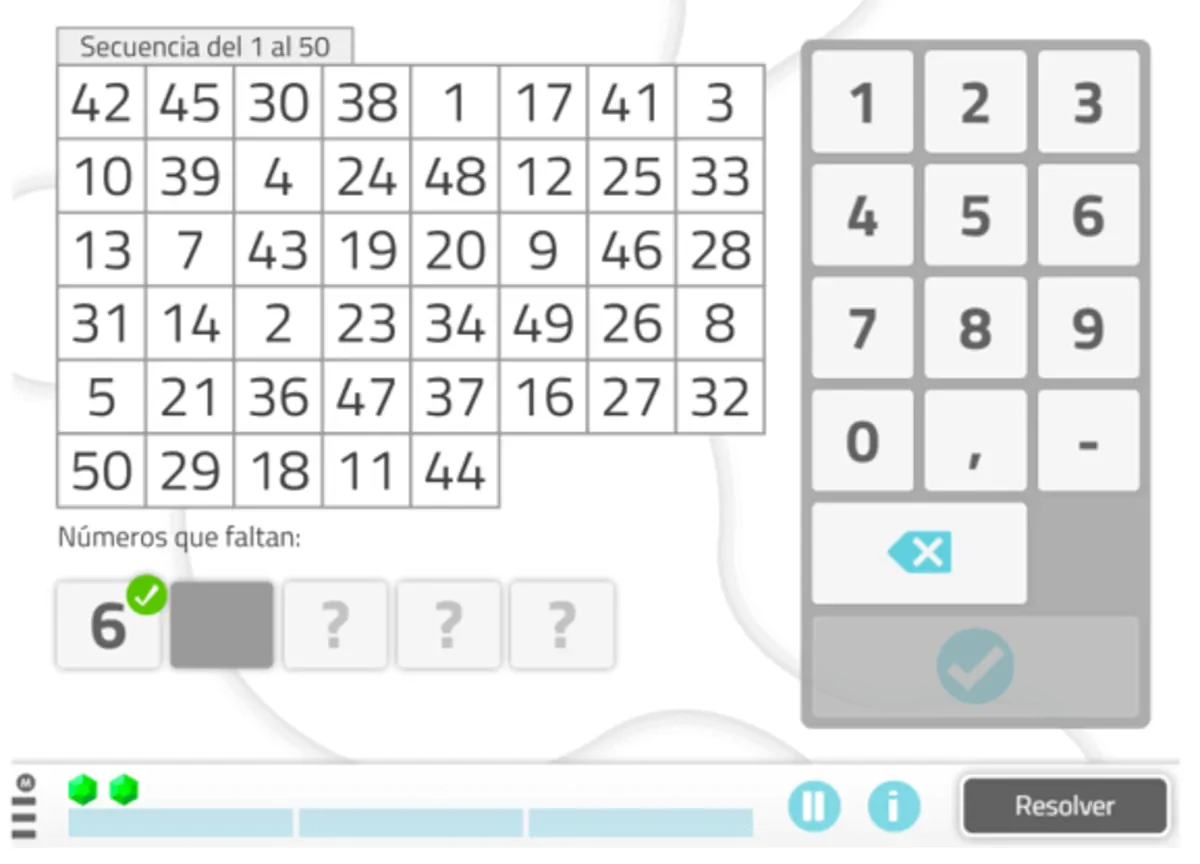
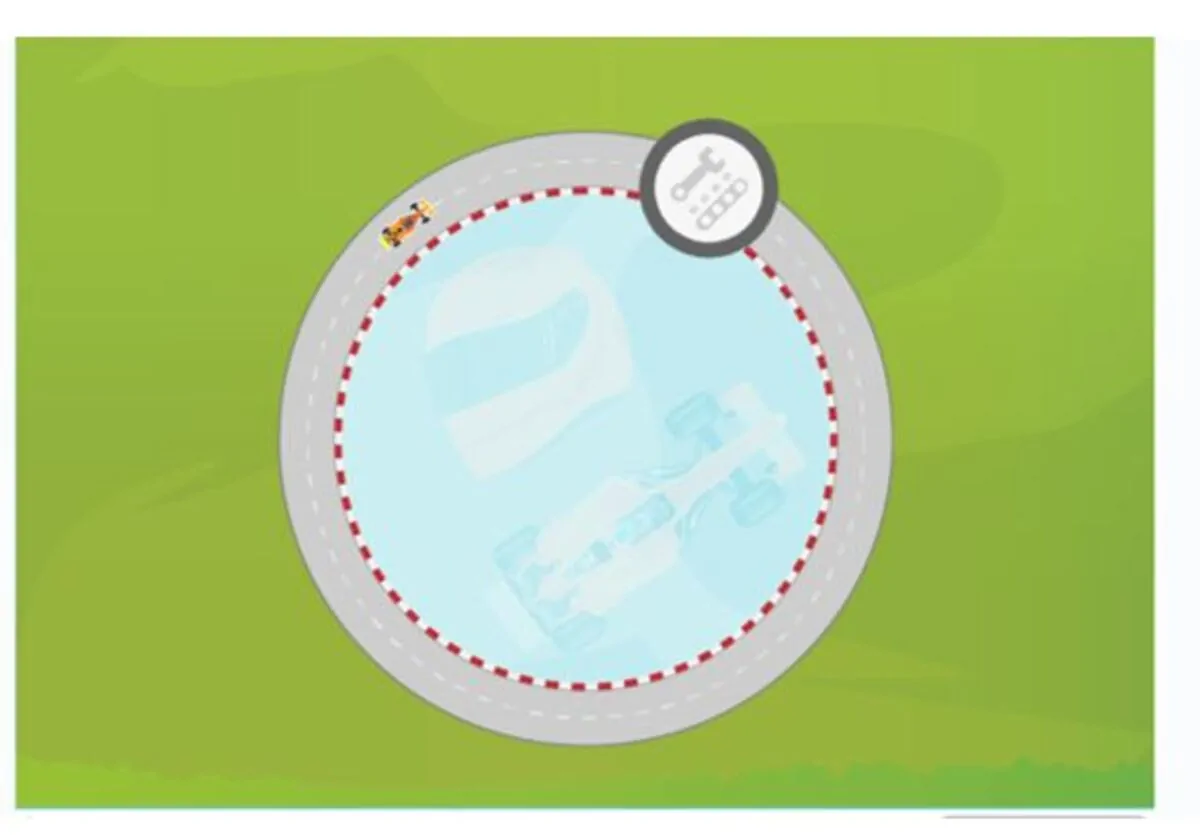
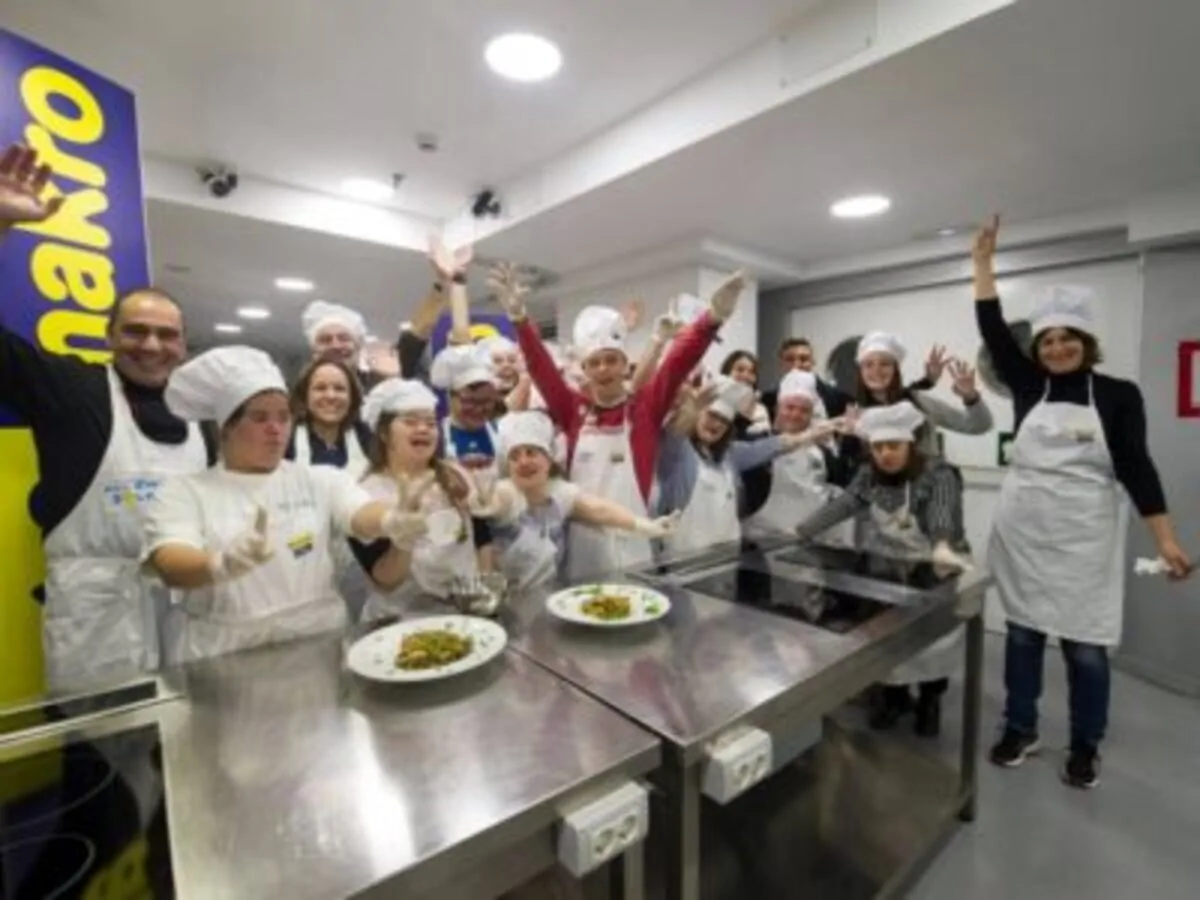

 Hippotherapy: what it is, foundations, benefits, and methodology
Hippotherapy: what it is, foundations, benefits, and methodology
Leave a Reply